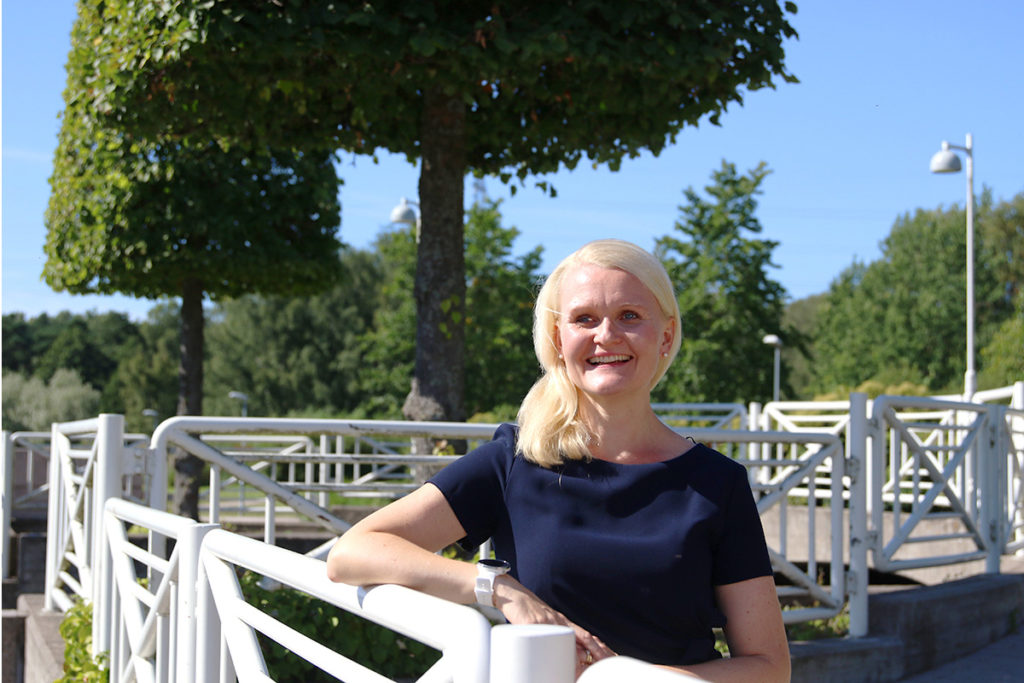
I work at Kojamo as the Corporate Responsibility and Sustainability Manager, overseeing urban development and housing. I am in charge of responsibility and sustainability at Kojamo, and my job is to continue developing the company’s long-term responsibility and sustainability work. My job allows me to have an impact on the development of responsible and sustainable business operations, in the construction of a sustainable city image and in the organisation of responsible, sustainable housing.
Kojamo’s sustainability programme
We are currently developing our sustainability programme, which will be published during 2020. The sustainability programme will include all the long-term work we have already succeeded in as well as a more detailed look into the future. We will use the programme to create key areas, goals and indicators for sustainability, and we will inform everyone about our progress as part of our sustainability reporting.
When developing our new sustainability programme, we wanted to ensure that our sustainability efforts were focused on the sustainability themes that were most important to our strategy, business operations and stakeholders. To achieve this goal, we performed a materiality analysis as part of our sustainability programme development process in the spring 2020. The results of the analysis create the foundation for our programme.
Materiality analysis
When developing sustainability, it is crucial to focus on themes that are central to our industry , are important to our stakeholders and themes that allow us to have an impact on society. With this in mind, we used the materiality analysis to identify the material sustainability aspects of our business operations. Then, we analysed these aspects on the basis of industry analyses, background analyses, key stakeholder views and an assessment of business impacts as well as impacts on society.
We also carried out a large-scale stakeholder study on sustainability. The study was carried out using online surveys, interviews and workshops. The study’s participants included Lumo home residents, investors, owners, analysts, our own personnel, our cooperation partners, organisations and representatives from the ministry, city and media. We received a total of 2,780 responses. It was great to see such active participation and to hear the views of our personnel and stakeholders on our most important sustainability themes. After all, the most important aspect of creating the sustainability programme is engaging our stakeholder network in planning sustainability work.
We went through the survey results carefully over the summer, and we will consider the views and development ideas of each stakeholder as we plan our future sustainability measures.
The results of the materiality analysis
As a result of the materiality analysis, the key aspects of sustainability were grouped under four themes: Sustainable urban development, delivering the best customer experience, the most competent personnel and a dynamic place to work, and a responsible corporate citizen. We will build our sustainability programme under these main themes during the autumn.
The main themes of the sustainability programme: sustainable urban development, delivering the best customer experience, the most competent personnel and a dynamic place to work, and a responsible corporate citizen.
Some of our most significant sustainability perspectives include ensuring the safety and comfort of residential areas and acting as a responsible corporate citizen. For environmental factors, the dominant themes are low-carbon operations, optimising and continuously improving energy efficiency, promoting the circular economy and material efficiency and leveraging innovative and intelligent solutions to reduce environmental impacts. Other aspects that play an important role include ensuring the long-term profitability and growth of business, treating employees fairly and equally and developing employee competence, leadership and managerial work.
We will continue to develop the sustainability programme on the basis of these results. The goals, measures and indicators of our programme will create a foundation for long-term development during the autumn.
It is important to plan the concrete actions that we will take to promote responsible and sustainable housing.
We would like to thank our stakeholders for their cooperation. We look forward to continuing our responsibility and sustainability work together.